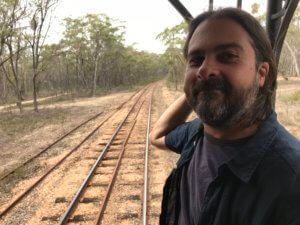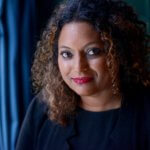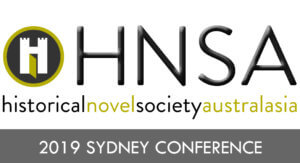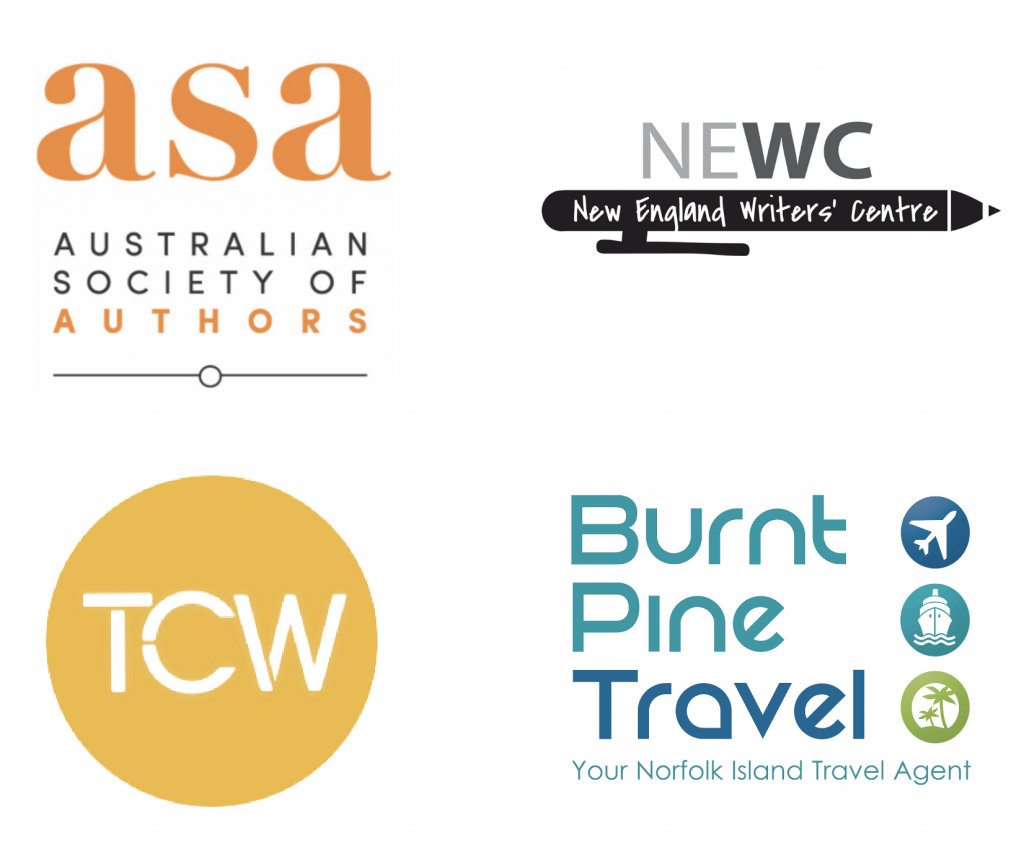Ali Alizadeh is an author and scholar. His books include a novel about Joan of Arc, The Last Days of Jeanne d’Arc, described as ‘miraculous’ in The Sydney Morning Herald; ‘extraordinary’ in Australian Book Review; and longlisted for the Australian Literature Society (ALS) Gold Medal. His other books include Iran, My Grandfather, a semi-fictional history of modern Iran; and the collection of poetry Ashes in the Air, shortlisted for the Prime Minister’s Literary Award. He’s currently working on a novel about the French Revolution, lives in Melbourne, and is a Senior Lecturer in Creative Writing at Monash University.
Your novel The Last Days of Jeanne d’Arc is delightful and illuminating. It takes a well-known historical story and then interprets it in a fresh way. I felt the opening was a poet’s opening. The first chapter is a heightened rendering of a dramatic moment, with a staccato rhythm to it. What was the genesis of this opening?
Thanks for your kind comments about the novel. I think the staccato quality you’ve mentioned indeed has something to do with my being also a poet. I quite like using parataxis in my poetry, that is, having lines, or sentences, clauses, etc, that can stand on their own and may not have an immediate, or an immediately discernible rapport with the preceding words. In the novel, as in my poems, the seemingly separate units do cohere, at least as far as I can make them cohere. There’s always a limit to what a writer can make their words do!

In so far as I am able to control things, I’d like sentences, phrases, fragments, etc, to be as precise and sharpened as possible, but to also work in tandem with each other. I think this is in part the result of my spending a lot of my more formative years staring at (pictures of) neoclassical art, especially the paintings of Jacques-Louis David. I feel that a similar aesthetic is not achieved by poets for a very long time after neoclassicism, and the poet who does this best, who best produces lines or phrases that are striking, sharp, with clear, precise contours, is without a doubt the great H. D. (Hilda Doolittle). She’s been a massive influence on my poetry, and I have probably brought some of that influence to my fiction.
One of the things I found really interesting in your book was your playfulness with perspective. Would you please give us a sense of the process you went through to make the perspectival choices that you did?
I think it came in part as a result of the conversations I was having at around the time I began writing the novel with a couple of my very excellent students – Andrew McLeod and Matthew Taft – who were working on polyphony in fiction. Polyphony is often quite subtle, if it’s there at all. I have a more emphatic application of it. This could be because I’ve always been intrigued by Jacques Lacan’s view of the conscious mind being the knotting of three dimensions or perspectives (symbolic, imaginary, real) and I actually once wrote a small chapbook of poetry in which the poems combined – in a paratactic or, as you’ve said, staccato-like style – seemingly separable statements written from different conscious dimensions, each with a distinctly different phonic or linguistic flavour. In the novel I’ve basically tried to use this approach to, hopefully, create a multi-dimensional narration, and also a more tangible, more concrete depiction of a much-mythologised, excessively spiritualised – literally sainted! – historical figure.
The story of Jeanne d’Arc, especially your re-telling of it, seems to have many contemporary parallels. For example, some of the violent hate speech she had to endure reminded me of the abuse women still endure today including in the online space. What were some of the narrative issues you had to consider when thinking about letting modernity or contemporary sensibility bleed into the historical story?
I’m a genuine history buff, and I can’t say that I’m personally too keen on these contemporary parallels, although they can be said to exit, and they’re often exploited and instrumentalised by various groups and factions. For the first few centuries after her death, Jeanne was used by the French monarchy as a symbol of the divine right of the French kings. After the French Revolution and into our own time, but particularly in late 19th century and early 20th, she was transformed into an overtly religious icon, which brought about her canonisation in 1920. Various feminists have also made use of her – the Suffragettes, Andrea Dworkin, etc – although some, most notably Simone de Beauvoir, rejected her image. Modern French ethno-nationalists have also used her extensively for their own objectives, and so on. All of these uses strike me as opportunistic and exploitative. And quite odious, when it comes to today’s Far Right using her image to bolster their brand of xenophobic patriotism.

My own depiction of her as a gay woman is not at all made in the interest of advocating any kind of contemporary ‘identity politics’. What fascinates me, and what I actually believe in, is that history possesses continuity, and that the event of Jeanne d’Arc – the actual, world -historical event that was the young French peasant-woman’s appearance on the battlefields of the Hundred Years’ War in 1429 in the Loire Valley, at the Siege of Orléans, and her turning the tide of the War – has real consequences for us today. It would not be impossible to say that, without her, the English could have defeated what remained of an autonomous French kingdom, and, with that, France as we know it may have never existed. Perhaps English power would have shifted to continental Europe, and Britain may have been left to the Scottish. Or maybe in place of France we would’ve got a Flemish kingdom which may have one day become a global superpower. Either way, the world would have been a very different place without Jeanne the Maid. Her significance to us today should not be filtered through some kind of ideological allegory, but be seen as an aspect of her historical reality, or, better still, as a consequence of her own truths.
What was your writing schedule like when working on The Last Days of Jeanne d’Arc ?
I wrote the first draft in one, more or less uninterrupted block of time, during the Christmas break a few years ago. I’m very fortunate to have a partner and friends who were kind enough to read this draft, and gave me their feedback. I think I wrote one more draft before sending it to publishers, and was, again, very fortunate to be guided by Ivor Indyk as I developed the subsequent drafts. In the final stages, I worked pretty closely with Nick Tapper, a very careful and close reader, to prepare it for publication.
The HNSA conference theme this year is “History Repeats”. What does this theme evoke for you?
The opening of Marx’s The Eighteenth Brumaire of Louis Napoleon – in which Marx is paraphrasing Hegel – i.e. ‘History always repeats itself, first as tragedy, then as farce.’
Which session are you looking forward to seeing in HNSA 2019 (apart from your own, which is of course: We Need to Talk about Bette and Joan)?
‘First Pages Pitch Contest’ looks like fun. I’d be curious to hear from unpublished writers.
Ali will be appearing with Jane Caro in We Need to Talk about Bette and Joan: writing famous figures on Saturday 26 October 2019 where they’ll discuss with Linda Funnell why they chose to investigate the stories of Elizabeth I and Joan of Arc, and how they bring fresh perspective to their histories.
Early bird registration ends on 31 July. Don’t forget to take advantage of a great discount.

Roanna Gonsalves is the author of The Permanent Resident (UWAP) which won the NSW Premier’s Literary Awards Multicultural Prize 2018, and was longlisted for the Dobbie Award. Her writing has been compared to the work of Alice Munro and Jhumpa Lahiri. Her four-part radio documentary series, On the tip of a billion tongues (ABC RN Earshot) is a portrayal of contemporary India through its multilingual writers. Roanna is a recipient of the Prime Minister’s Australia Asia Endeavour Award. See more at https://roannagonsalves.com.au

Once again, historical fiction writers and readers can gather for a three stream program on the weekend of 26-27 October including our extended Academic stream on Sunday 27 October. This time there’s also a Craft & Publishing program on Friday 25 October with craft workshops, masterclasses and manuscript assessments with top class tutors. Our Guest of Honour is Jackie French. Keynote speaker Paula Morris will address our theme: History Repeats.
Among the 60 acclaimed speakers are patrons Kate Forsyth and Sophie Masson, Catherine Jinks, Ali Alizadeh, Lucy Treloar, Pamela Hart, Nicole Alexander, Jane Caro, Alison Goodman, Kelly Gardiner, Michelle Aung Thin, Meg Keneally, Majella Cullinane and so many more.
Enjoy a delicious meal at our conference dinner on Saturday 26 October where Anna Campbell will entertain us. You’ll also hear who’s won this year’s ARA HNSA Short Story Contest with a $500 prize, and the HNSA Colleen McCullough Residency.
- Visit our website to purchase your tickets now!
- Subscribe to our newsletter for interviews, podcasts and conference news.
- Read our features on News & Interviews.
- Learn about our sponsorship opportunities.
- Let’s make a noise about historical fiction!




